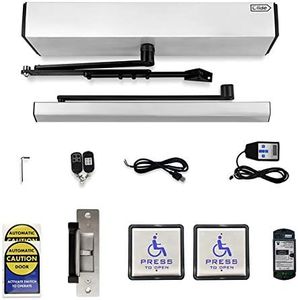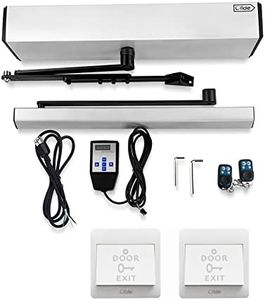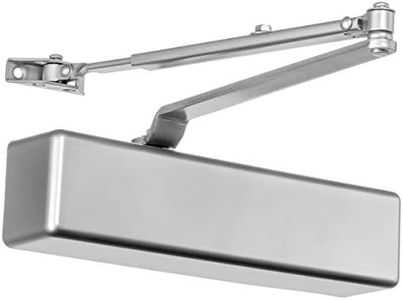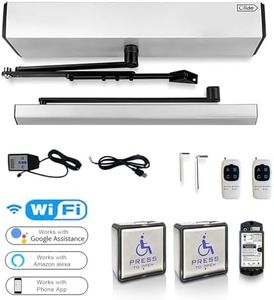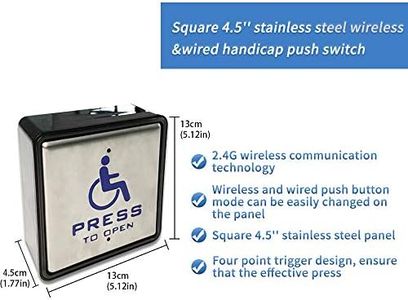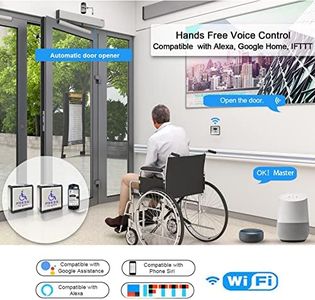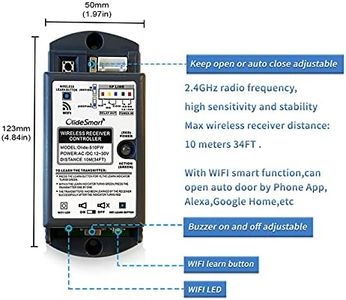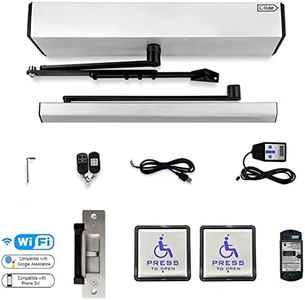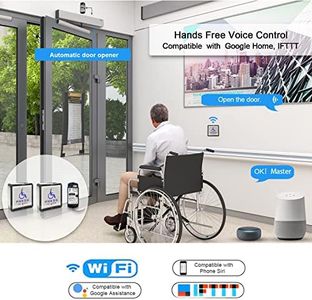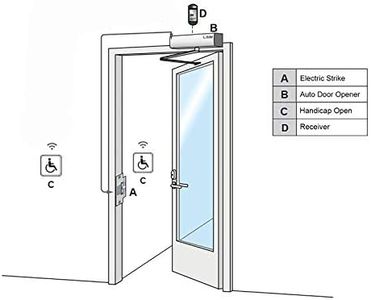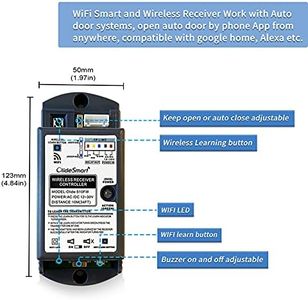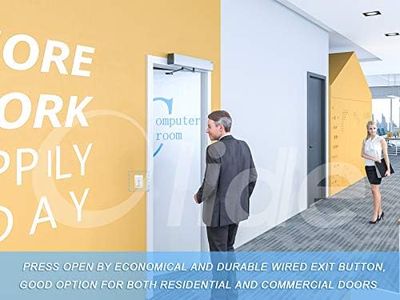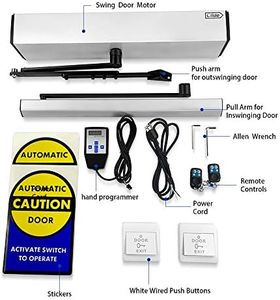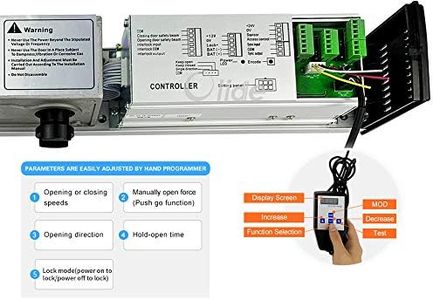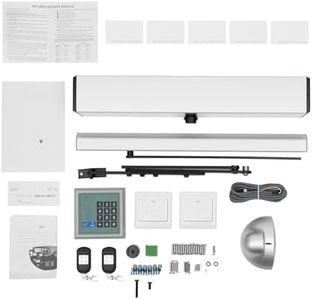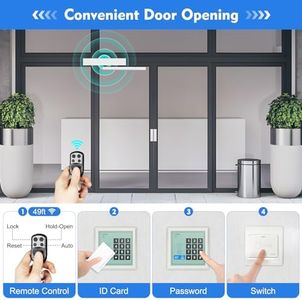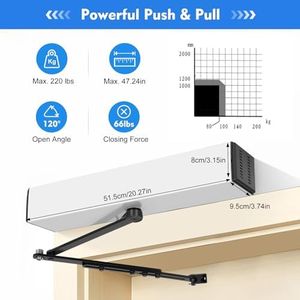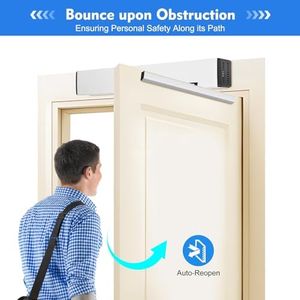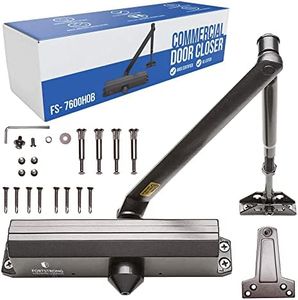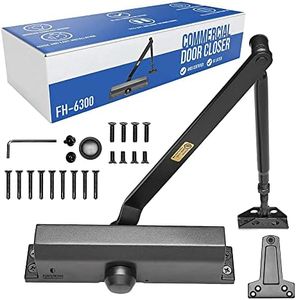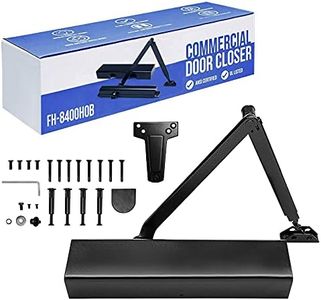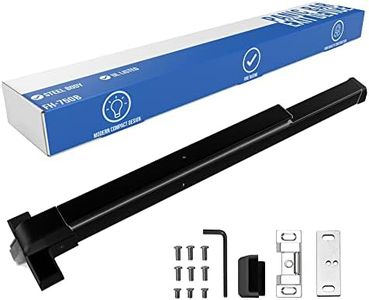4 Best Accessible Door Openers 2025 in the United States
Winner
Handicap Door Opener for Disabled People, Low Energy ADA Swing Door Operator with Stainless Steel Handicap Push Buttons
The Olideauto Handicap Door Opener for Disabled People is a versatile and user-friendly device designed to assist individuals with disabilities. One of its key strengths is the dual functionality, allowing the door to be opened both manually and automatically. This flexibility is enhanced by the ability to adjust the manual push force for easier use. Additionally, the door opener is equipped with smart features, including compatibility with Alexa and Google Assistant, enabling voice control and remote operation via a phone app. This makes it a modern, convenient option for tech-savvy users or caregivers looking to manage accessibility remotely.
Most important from
138 reviews
Olideauto Swing Door Operator Automatic for The Disabled,Commercial Smart WIFI Handicap Door Opener Wireless Olide-120B with Wireless Handicap Push Button&Receiver and DC12V 880lbs Electric Strike
The Olideauto Swing Door Operator Automatic for The Disabled is designed to make door accessibility easier, especially for individuals with disabilities. This door opener can be controlled via voice commands using smart speakers like Alexa or Google Assistant, and through a remote phone app, offering convenience and flexibility. Safety is a priority; the door will automatically re-open if it detects an object in its path, ensuring no one gets hurt.
Most important from
28 reviews
Olideauto DSW120 Handicap Door Opener for Disabilities,ADA Swing Door Operator Low Energy
The Olideauto DSW120 Handicap Door Opener is designed for easy and convenient access for disabled individuals, the elderly, and children. It is activated by wireless fob keys or exit buttons, offering fast and convenient entry through automatic swing doors. This product is equipped with safety features, automatically reopening if it detects an object in the closing path, enhancing safety for users. For optimal use with disabled access, it is recommended to install an optional motion safety scanner to extend the re-opening time.
Most important from
44 reviews
Top 4 Best Accessible Door Openers 2025 in the United States
Winner
9.9 score
Handicap Door Opener for Disabled People, Low Energy ADA Swing Door Operator with Stainless Steel Handicap Push Buttons
Handicap Door Opener for Disabled People, Low Energy ADA Swing Door Operator with Stainless Steel Handicap Push Buttons
Chosen by 1113 this week
Olideauto Swing Door Operator Automatic for The Disabled,Commercial Smart WIFI Handicap Door Opener Wireless Olide-120B with Wireless Handicap Push Button&Receiver and DC12V 880lbs Electric Strike
Olideauto Swing Door Operator Automatic for The Disabled,Commercial Smart WIFI Handicap Door Opener Wireless Olide-120B with Wireless Handicap Push Button&Receiver and DC12V 880lbs Electric Strike
Olideauto DSW120 Handicap Door Opener for Disabilities,ADA Swing Door Operator Low Energy
Olideauto DSW120 Handicap Door Opener for Disabilities,ADA Swing Door Operator Low Energy
Our technology thoroughly searches through the online shopping world, reviewing hundreds of sites. We then process and analyze this information, updating in real-time to bring you the latest top-rated products. This way, you always get the best and most current options available.


